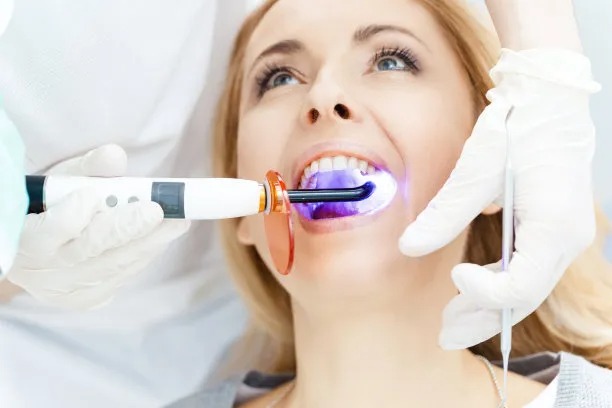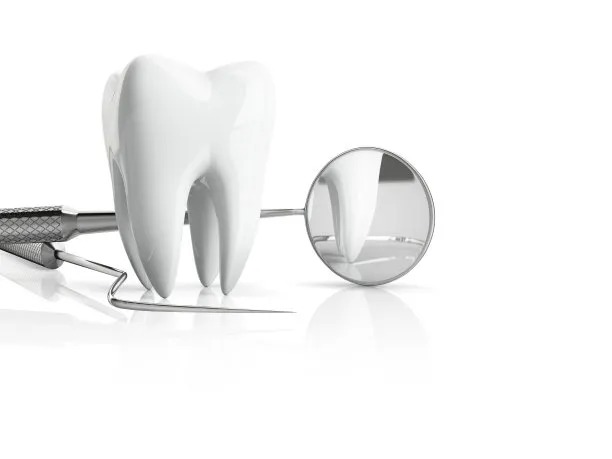Summary: Periodontal disease represents a significant health concern, characterized by inflammation and infection of the gums and supporting structures of the teeth. This article aims to enhance understanding of periodontal disease by exploring its causes, common symptoms, and effective preventive measures. By comprehensively analyzing these areas, individuals can better manage their oral health, ultimately reducing the risk of developing periodontal issues. It is crucial to recognize that proper oral hygiene practices and professional dental care are pivotal in maintaining gum health and ensuring a brighter future for our smiles.
1. Causes of Periodontal Disease Explained

Periodontal disease, primarily caused by the accumulation of plaque, begins with inadequate oral hygiene. When plaque, a sticky film of bacteria, is not removed through regular brushing and flossing, it can harden into tartar, making it difficult to clean and leading to gum inflammation.
Moreover, genetic factors play a significant role in an individuals susceptibility to periodontal disease. Some individuals may be genetically predisposed to inflammatory responses, leading to a higher risk of gum disease even with good oral hygiene practices.
Certain health conditions, such as diabetes and autoimmune diseases, can exacerbate the severity of periodontal disease. Individuals managing these chronic conditions must remain extra vigilant in their oral health practices to minimize the associated risks.
2. Identifying Common Symptoms of Periodontal Disease
The initial symptoms of periodontal disease often include gum redness, swelling, and bleeding during brushing or flossing. Individuals may notice a change in the color or texture of their gums, which may appear puffy or dark red instead of a healthy pink.
As the disease progresses, more severe symptoms such as persistent bad breath and gum recession can develop. Individuals may also find that their teeth become loose or shift in position, indicating significant damage to the supporting structures.
In advanced cases, the formation of pockets between the teeth and gums can occur, making it essential for individuals to recognize these signs and seek timely dental intervention to prevent further complications.
3. Effective Preventive Measures to Adopt
Preventing periodontal disease largely centers on maintaining optimal oral hygiene practices. This includes brushing twice daily with fluoride toothpaste and flossing daily to remove food particles and plaque buildup between the teeth.
Regular dental check-ups are an essential component of prevention. During these visits, a professional cleaning will remove tartar and plaque that regular brushing may miss, and your dentist can identify potential issues early on.
Additionally, adopting a healthy lifestyle can significantly impact oral health. Diets rich in vitamins and minerals can support gum health, while quitting smoking and reducing alcohol consumption can lower the risk of developing periodontal disease.
4. Importance of Regular Dental Care
Regular dental check-ups not only help in the prevention of periodontal disease but also serve as a platform for educating individuals about the importance of oral health. Dentists can offer tailored advice and strategies for managing oral hygiene more effectively at home.
During dental visits, your dentist can assess gum health and identify early signs of periodontal disease. Early intervention is crucial, as it significantly increases the chances of reversing gum disease before it progresses
Moreover, professional cleanings conducted at regular intervals keep the teeth and gums in optimal condition, reducing the likelihood not only of periodontal disease but also related systemic health issues linked to oral infection.
Summary:
Understanding the causes, symptoms, and preventive measures associated with periodontal disease is essential for effective oral health management. With the right knowledge and commitment to oral hygiene and regular dental care, individuals can combat and reverse the effects of gum disease.
Investing time in maintaining oral health reaps considerable rewards, contributing to overall well-being and quality of life. Remember, "Your smile deserves the best care!"
This article is compiled by Vickong Dental and the content is for reference only.
Vickong Dental
Vickong Dental is a large medical group established in Hong Kong in 2008 by professors from well-known medical universities in Guangdong and Hong Kong, as well as medical doctors from key national '985' universities (including Master's supervisors and senior professors). The chain of branches brings together expert dentists with PhDs and Master's degrees from Hong Kong and Mainland China, committed to providing high-quality dental treatment.
"Vickong Dental Practices the University Motto of 'Healing and Serving Society,' with a Stable Operation for Sixteen Years. It Has Been honored with Hong Kong Enterprise Leaders's Choice,' and is a Global Trusted Implant Center for the Nobel Implant System. Recommended by Hong Kong Metro Broadcast and Guangdong Television, it Serves Customers from Over Thirty Countries and Regions, Gaining the Trust and Favor of Citizens from the Guangdong-Hong Kong-Macau Greater Bay Area and Surrounding Cities.

Thousands of customers' unanimous praise
The most recognized and highly recommended dental service by customers in the Guangdong-Hong Kong-Macau Greater Bay Area
We Ensure You Receive Detailed Care and Attention Here
Hong Kong standards, Shenzhen prices, Your Trusted English-speaking dentists

Vickong Dental Medical-Grade Instrument Disinfection Process
Vickong Dental Medical-Grade Instrument Disinfection Process

Vickong Dental Chain: A Warm and Comfortable Environment for Treatment






Appointment Hours

Q&A
Why choose Vickong Dental?
Vickong Dental practices the university motto 「Medicine to Benefit Society」, with each branch bringing together highly qualified dentists with doctoral and master’s degrees from Hong Kong and the Mainland, and has maintained seventeen years of steady operation。Recipient of 「2024 Hong Kong Enterprise Leaders Brand」, 「2025 Hong Kong Enterprise Leaders Brand」, a Nobel Biocare Global Trusted Implant Center, and a brand recommended by Metro Radio Hong Kong and Guangdong TV。
To date, we have served customers from more than thirty countries and regions,earning exceptionally high word-of-mouth recognition and trusted recommendations from residents across the Guangdong-Hong Kong-Macao Greater Bay Area and surrounding cities
We have eight major branches in Zhuhai、Shenzhen,and a consultation and service assurance center in Hong Kong,so you can book a free consultation at any time for any questions,which is very reassuring.
If I do not accept the quotation after the CT scan, will I be charged??
No! As long as the actual treatment has not started, you will not be charged any fees.
Will there be any additional charges during the treatment process?
No, there won’t be any additional charges. Before treatment begins, we will clearly explain the treatment plan and its corresponding fees. Only after the patient agrees and signs the consent form will we proceed with the dental service.
Can I pay in Hong Kong dollars?
Yes. Vickong Dental accepts payment in Hong Kong dollars. The amount will be converted based on the exchange rate of the day, and the applicable rate will be clearly communicated to you in advance.
Can I reschedule my appointment at any time?
Yes. Please contact us via **WeChat** or **WhatsApp** as early as possible, providing your original appointment time and details, along with your preferred new date and time slot for rescheduling.













